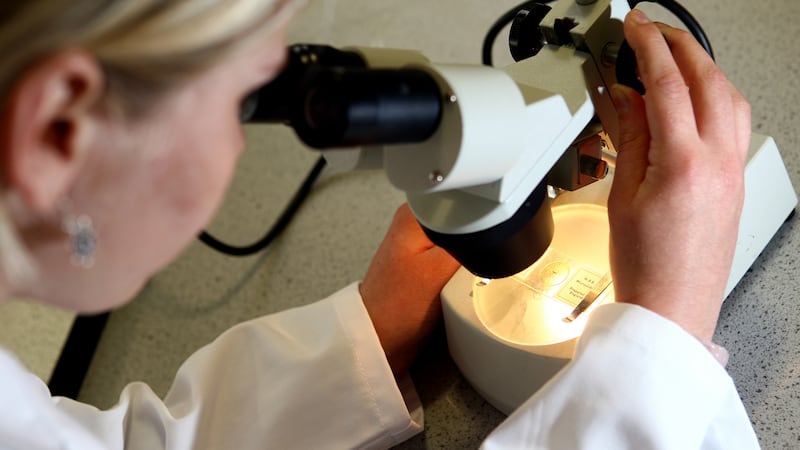An exit poll in the south recently indicated that two thirds of the electorate there would support a united Ireland. Let’s then have a referendum there to see whether that is borne out. As for having a referendum in the six counties, it may be increasingly difficult for the Brits to refuse to have a referendum in the face of growing support for it in the south. This leads me to Seamus Mallon and Gerry Adams who now take the view either that a majority vote shouldn’t count or that a transition period should take place.
Firstly in relation to Seamus Mallon, I would say that he is quite happy for a 50-plus-one support for remaining in the UK to be acceptable but like Micheál Martin, Simon Coveney, not when it comes to a united Ireland. Next, I will say this to Gerry Adams. You have suggested that should there be a vote for a united Ireland in the north that there should be a transitional period before that comes into being, that it should be a place that offers inclusiveness and equality to unionists. Firstly, let me say that republicans have always believed in equality. Where equality exists then so does inclusiveness. However, when people like Gerry Adams and Seamus Mallon talk about inclusiveness for unionism they seem to be suggesting that there should be some special arrangements for unionists. When a united Ireland comes about unionists should be treated no differently from anyone else. Religious freedom goes without saying. But there should not be any devolved administration for the six counties because that would provide legislative powers beyond those provided to the rest of Ireland. Of course, local government administration should reflect that in other parts of Ireland. Transitional arrangements should be as short as necessary. Let’s remember before the IRA called its ceasefire in 1994 a stated condition was a declaration of intent to withdraw by the British government within the lifetime of a parliament. For people who were associated with that condition, to suggest now that it may be OK to wait years following a referendum to bring a united Ireland about seems totally hypocritical.
Finally, it seems to be a suggestion that to move to a united Ireland too hastily may cause instability, even violence. Who from? Are we to delay a united Ireland because we fear violence from loyalism? Is this what Seamus Mallon, Gerry Adams and free state establishment parties are suggesting?
SEAN O'FIACH
Belfast BT11
Complicated heritage could inspire governments to share rock
In 1985 Ireland’s Michael d’Alton observed that “a Scot, it would seem from his name, has made a landing on Rockall”.
The alleged ‘Scot’, Tom McClean, had planted a Union Jack and stayed for 40 days, though in an attempt to claim the currently disputed rock in the north-west Atlantic “for England”.
D’Alton countered by recounting his part in a successful, albeit briefer, Tricolour planting expedition in 1975. In recalling these exploits recently, a Dublin newspaper called McClean a “British man”.
In fact, Tom McClean’s identity is at least as confused as are claims on Rockall. His mother gave birth to McClean in Dublin’s Bethany Home in 1943, because she was unmarried. Not the first to suffer involuntary child migration to England, McClean was sent unaccompanied in 1947 to ‘Mr Fegan’s Home for Protestant Boys’ at Yardley Gobion. He was later misinformed that his parents had died in a fire.
Mr Fegan’s junior orphanage was run by women who, according to McClean’s 1983 memoir, “weren’t nuns, but they dressed as if they were... We had Bible classes every day, twice on Sundays.” Since food was poor and in short supply, boys “fought among ourselves to get enough to eat”.
McClean further recounted: “I learned to fight early and was often beaten for it.” This treatment prepared McClean for life in the British army’s Parachute Regiment, before transfer to the SAS.
In 1969 McClean was the first to row the Atlantic alone, from Newfoundland to Blacksod Bay in Mayo. He did it again in 1982, in a boat 9ft 9ins long.
After tracing his roots McClean remarked in 2010: “I claimed Rockall for England when I was Irish”. He added: “It’s quite a story, with Ireland and England and everything.” He observed: “I’m an Irishman sounding like an Englishman, living in Scotland… every single person in my family going back generations is Irish.”
Now, the government of where McClean has lived for many years is claiming Rockall.
Perhaps McClean’s shared, if complicated, heritage could inspire the Irish and Scottish governments to share the uncomplicated rock.
(Dr) NIALL MEEHAN
Dublin
No drilling in our communities
The Department for the Economy has opened a consultation into the exploration of oil by a private company which ends on July 5.
If granted a licence to drill in our communities, there are a list of potentially dangerous outcomes that people should be made aware of.
The dangers include – habitat destruction, oil leaks and not to mention exposing our communities to dangerous and potentially unknown chemicals. It is a dangerous and risky strategy which we will have to deal with the aftermath.
There is also a real danger of water contamination with the drilling for oil. There are too many associated risks that expose our environment and communities to danger and harm.
The risk is not worth taking. We have to tell the company and the Department for the Economy to halt their plans.
Crucially, we have witnessed a global movement calling for action on climate change and one of the arguments central to that is keeping fossil fuels in the ground. Private profit shouldn’t come before saving our planet. It’s time we kept them in the ground.
GERRY CARROLL MLA
People Before Profit
Punish and deter
The arrest of Trevor Birney and Barry McCaffrey – the two journalists involved in the making of the documentary about the Loughinisland massacre – and confiscation of items was more a means to punish and deter future journalists in efforts to uncover state crimes.
It must be embarrassing for the establishment when state assassins are outed and the cover-up of their crimes is exposed.
The extent of materials seized from the two journalists suggests the authorities were concerned about how information was gathered and not about whether laws were broken.
It’s more about understanding journalistic methodology so that restrictions can be introduced in the future to hinder similar efforts by journalists in uncovering state crimes.
I think that’s the game.
I see now the BBC are refusing to show the documentary. I thought I lived in a free society.
LOUIS SHAWCROSS
Hillsborough, Co Down
Scotch on the Rockall
Why don’t we quietly let the Rockall misunderstanding slide until Ireland and Scotland are both independent – which will be soon – and then share?
JOHN L MORAN
Dublin 2







